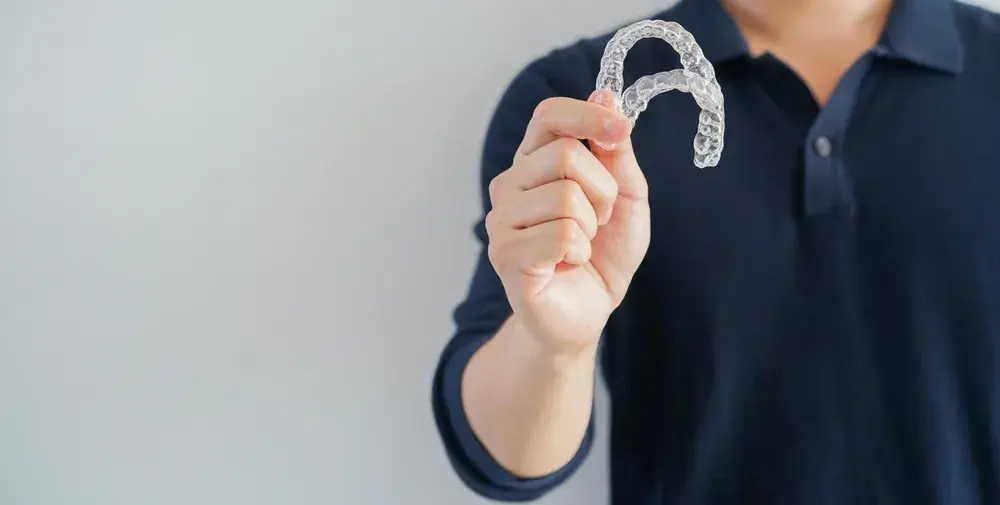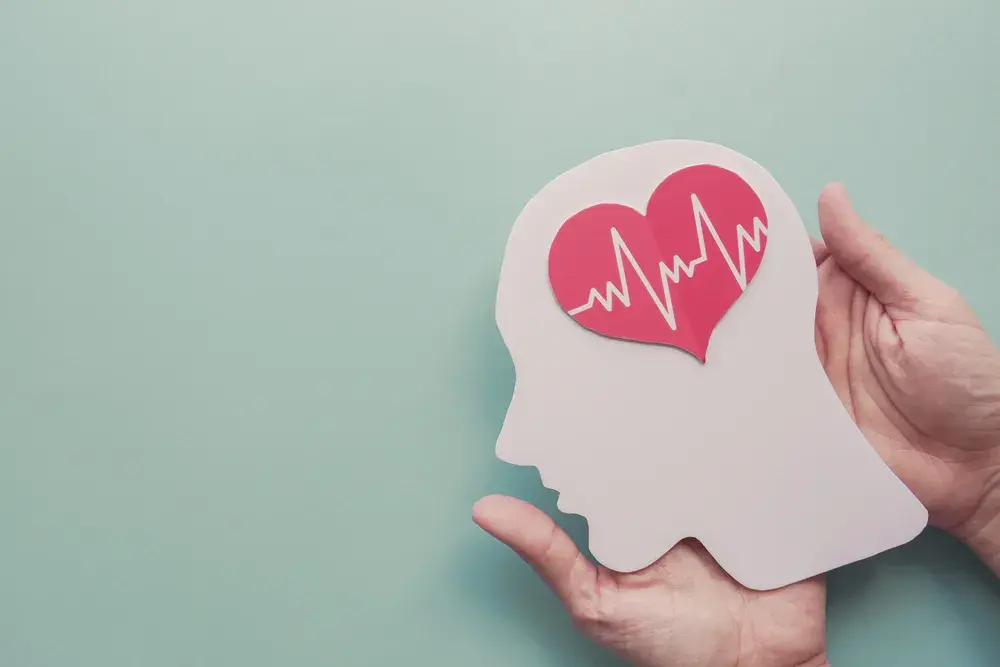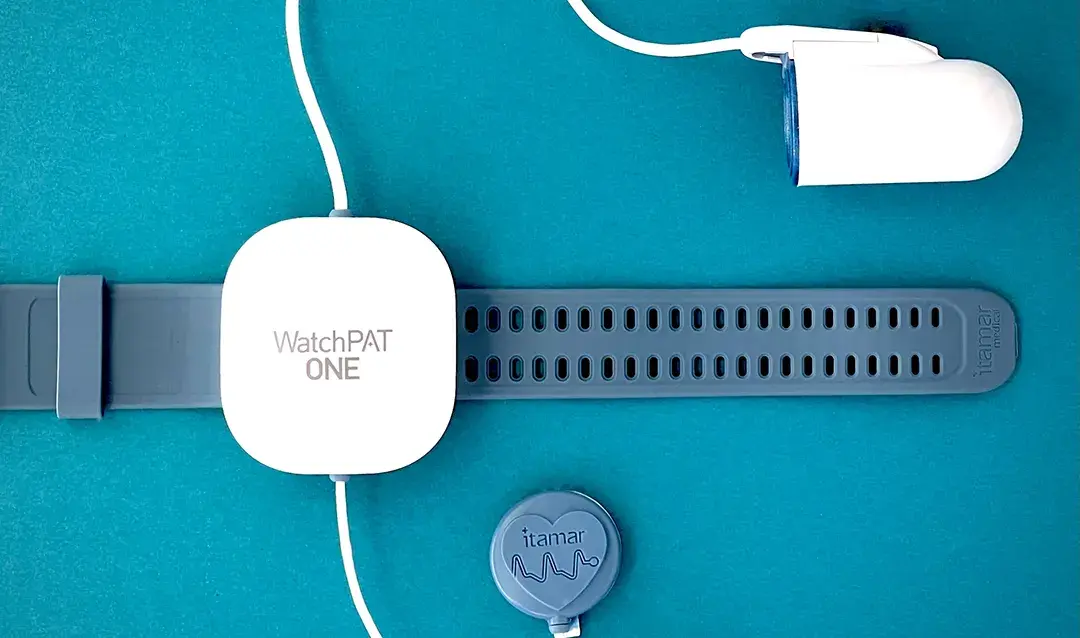I Finally Got Treated for Sleep Apnea — Here's What My Life Is Like Now
I used to have to write myself notes to remember basic tasks

We recently spoke with Garrett via Zoom.
This interview has been edited for length and clarity.
Complete Sleep: When did you first suspect you might have sleep apnea?
Garrett McNamara: In my early 30s, I had a girlfriend who told me that I snored really badly. At the time, I only really cared about that because I knew that it was annoying for her; I wasn’t concerned for myself or my health at all. After all, how bad could it be? Some people just snore.
My doctor suggested that I do a sleep study, but my insurance didn’t cover it. Knowing what I know now, I would have fought it more, but I didn’t think sleep apnea was serious at the time, and I also didn't know that you could appeal to your insurance company. I thought that if they said no, that was that.
CS: Were you having any symptoms other than snoring?
GM: I knew that I probably wasn’t sleeping as well as I could be, but I wasn’t worried because I was still getting about eight hours a night, and I still had dreams. I’d heard that REM sleep is supposed to be the best sleep for you and that you can't dream unless you're in REM, so if you’re having dreams, you’re doing ok — which I know now isn’t really true. There are all these ideas about sleep that you pick up throughout the years that are kind of half-truths.
[Ed note: It is a common misconception that dreams only occur during REM sleep; studies show that dreaming can occur during any sleep phase.]
CS: How were you feeling around this time?
GM: Sometimes I wouldn’t be just tired, but seriously fatigued. Like in the mornings, I often couldn’t do anything at all. I felt like there was this heavy curtain surrounding me. I just didn’t want to get out of bed, and not in that relaxed, lazy Sunday morning way that we all experience. Practically every morning, it was hard to motivate myself to just get up. Additionally, I was experiencing a mental fog, like I wasn’t as mentally quick as I had been. I was losing words and forgetting basic things.
My energy was just drained, too. My dad and I would have a fishing trip planned, and I’d wake up and say, “You know what? I really don’t want to go. I just want to go back to bed.” That’s all I wanted to do — sleep.
CS: What steps did you take at that point?
GM: I tried going to the doctor. I'm not saying he’s to blame, but there just wasn’t any urgency on his end. And in retrospect, the amount of concern there wasn’t proportionate to what was actually happening. I took a sleep test, but it was a bad test and came back inconclusive, so we just didn’t do anything about it.
A couple years later, I came down with Covid-19. It dragged on for months, and I just kept not getting better. It turned into a case of long covid: I had issues with balance, with my heart, and the fatigue that I’d been experiencing got much worse. I was having serious problems with cognition, including lots of difficulty remembering people's names and words. I’d stand up to go do something and immediately not remember what I was going to do.
So I started working with different doctors, trying to figure out what was going on. I ended up in the hospital a couple times — it was bad. Finally, I met this lab tech who asked me if I’d ever been tested for sleep apnea, and I told him that the test came back inconclusive but I thought I probably had it. At that time, the way I said it was basically the same way I would tell a friend I’d just bruised my elbow. It felt like no big deal.
CS: Right, since you didn’t really know what sleep apnea could do to your health yet, you weren’t especially concerned.
GM: Exactly. So I took the test and it turned out I had severe obstructive sleep apnea — my AHI was over 60.
CS: Oh, wow — and a score over 30 is considered severe, so that’s extremely severe.
GM: Right. Then I found out that people with obstructive sleep apnea are 75% more likely to develop long COVID. I don’t know exactly why that is, but I have to believe it’s because your body doesn’t get a chance to heal. If you’re not really sleeping, your body just isn’t able to recover. So I had severe obstructive sleep apnea and an oxygen saturation level of 74% — and for reference, between 95-100% is normal. So all this had to get addressed.
CS: What was that process like?
GM: I got the test results and eventually, months later, a CPAP machine. The time between getting diagnosed and getting treated was really drawn out, and those months were stressful.
CS: I’ve heard that a lot, that there’s this gigantic waiting period with traditional models. People are diagnosed and then they’re just stuck in this awful limbo waiting to receive treatment, sometimes for months and months on end. That’s something we’ve set out to solve with Complete Sleep, which is something I’m really proud of. I’m so sorry you had to go through that experience.
GM: Thanks, yeah, it was really stressful. During this waiting period, I read up on sleep apnea and discovered just how bad it can be for your health. I also found out everything I’d experienced during my long covid journey — the cognitive issues, the fatigue, the heart issues — was a perfect match for sleep apnea, too.
At that point, I'd been dealing with these symptoms for two years. So I was trying to be as professional and as nice as possible to the medical team, but it was frustrating because I’d been waiting so long for relief. I finally got it on March 11th. The team explained how to use the CPAP, and suggested I watch TV with it for a couple hours so I could get used to it, then try sleeping with it the next night.
CS: How did it go?
GM: Within two days, I felt better. I was able to remember things again. I wasn’t having to write everything down, which was wonderful. My life didn't revolve around sticky notes anymore.
CS: Wait, you were writing yourself sticky notes to not forget things? Like how the protagonist writes notes to himself in Memento?
GM: Exactly. I had to be so regimented because I would just forget everything. I wouldn’t remember anything I needed to do, so if something came up, I knew I needed to write it down immediately. It was even silly stuff — like my whole adult life, I’ve always gone grocery shopping on Sundays. But when I developed long covid and sleep apnea, I couldn’t even remember that. I had to put “grocery shopping” on my weekly calendar. But the CPAP machine changed all that.
CS: I’m so glad the treatment worked so quickly.
GM: It was so fast. Almost immediately after starting treatment, I began to get my memory back. I started to be able to find words again without searching for them. The fatigue got better, too. These days, I get to think about what I actually want to do with the day rather than trying to will myself to just get out of bed. It’s been five or six months and I’m just doing so much better than I was. Previously, no matter how good of a day I had planned — I could be going to my best friend’s wedding, and all I’d be able to think was, “Can I just lie down for ten more minutes?” That feeling is gone, and I don’t miss it at all.
CS: That’s amazing. So within two days your symptoms were much better. How long before you felt really yourself again?
GM: It couldn't have been more than a week before my vocabulary came back, and I was actually energized to go to the gym. Then things just got progressively better. In the past six months, I feel like my metabolism has improved. I’ve been more active. I feel like my emotional wellbeing has improved, too, just from being able to think clearly.
CS: Earlier you said you’d been having heart problems. Did receiving sleep apnea treatment help with that as well?
GM: Yeah, it did. After COVID, I started having blood pressure spikes and drops. Up until 2020, I’d always had very good blood pressure: 120 over 80. But once I got long covid, there were times where it was alarmingly high, then it would be alarmingly low. Over time, it was sitting really high, and it's not doing that anymore. I still have spikes and occasional palpitations, but the blood pressure has come to a more normal level.
CS: How about your sleep?
GM: Well, I always thought that I was sleeping fine because I would remember dreaming, but of course, I wasn’t, really. I had a fitness tracker before I got the CPAP machine and it says that I’m getting more deep sleep and REM sleep. Of course, I don’t know how good the fitness tracker is, this isn’t something that my doctor gave me or anything, but that’s what it’s showing. And I can honestly feel that my sleep is better — that I’m the right kind of tired when I want to go to bed, if that makes sense? Before the CPAP, I always felt worn out. When I went to bed, the sleepiness felt unhealthy, all-encompassing. It didn’t feel good.
I think it’s sort of like the difference between shutting down a computer the proper way and just pressing the power button until the system turns off. It kind of feels like everything’s happening in the right order now. Previously, I would just kind of crash, almost against my will.
CS: I’m so glad this has worked out for you. Any words of advice for someone who suspects they might have sleep apnea?
GM: Getting treated for sleep apnea has been amazing. It’s changed my life so much for the better, and there have been no side effects, no downsides. I just have so much more energy now. If you think you might have it, getting tested is a really good idea.
Garrett was not treated through our services at Complete Sleep; we’re happy to report that he received treatment before our company was founded.



